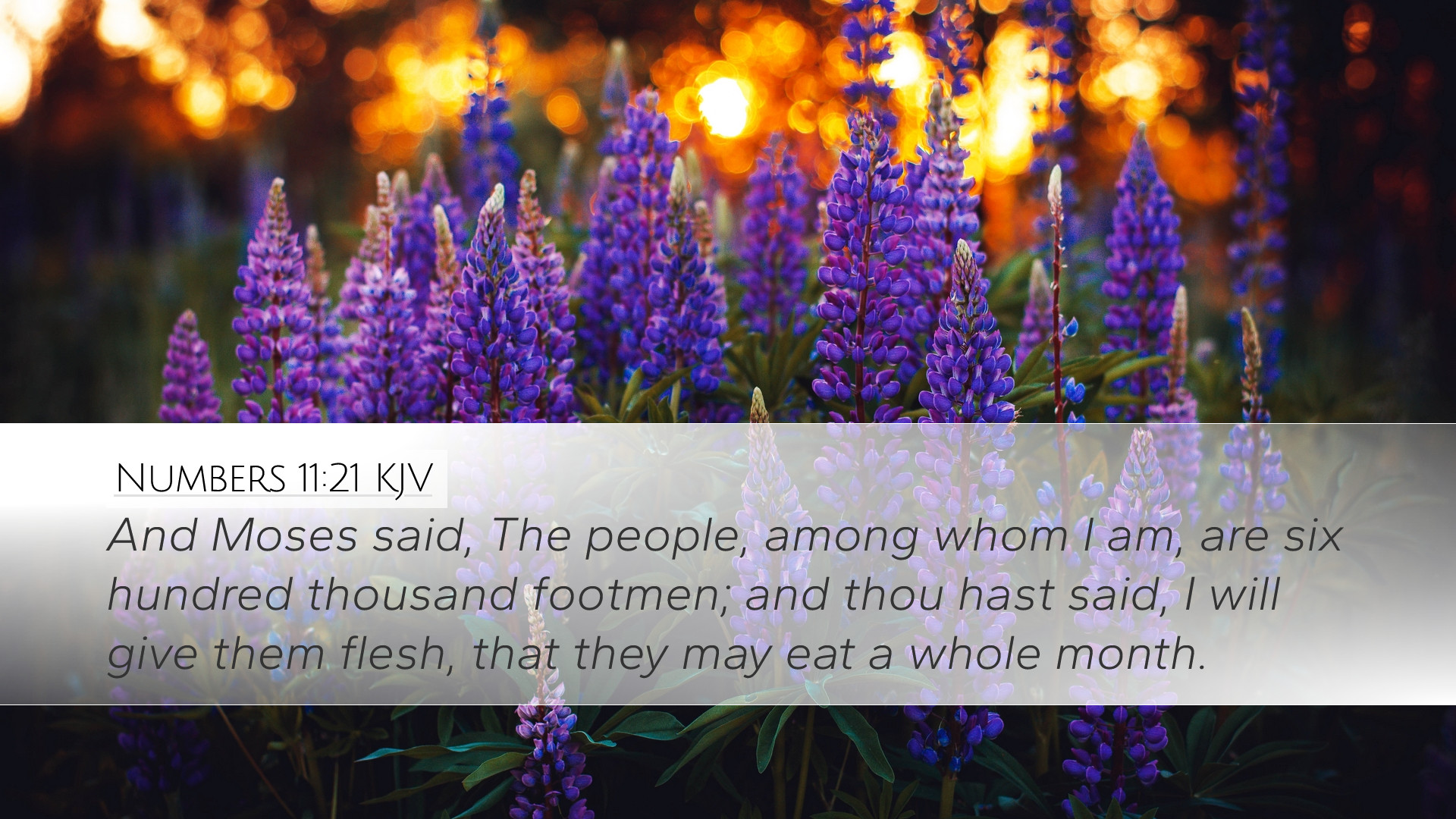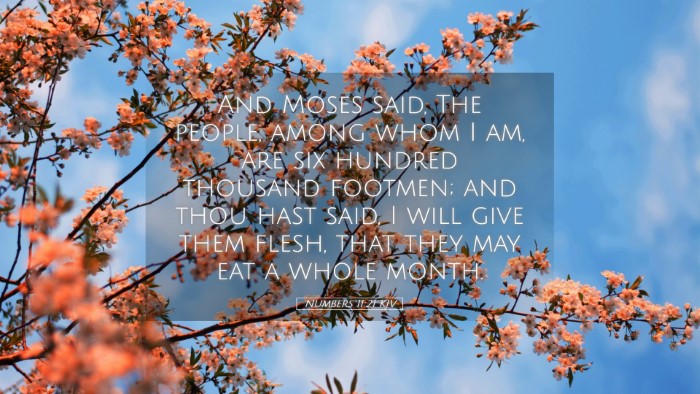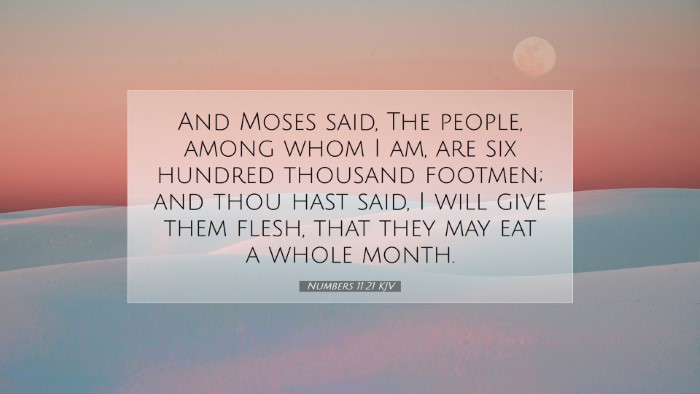Commentary on Numbers 11:21
Text of Numbers 11:21 (NKJV): "And Moses said, 'The people whom I am among are six hundred thousand men on foot; yet You say, "I will give them meat, that they may eat for a whole month."'”
This verse captures a moment of deep tension and concern within the leadership of Israel, as Moses addresses God regarding the daunting task of feeding the people in the wilderness. Various commentators provide rich insights into its implications for faith, provision, and the nature of leadership.
Insights from Matthew Henry
Contextual Setting: Matthew Henry underscores the challenges faced by Moses as a leader. He laments that Moses’ response reveals both his burden of leadership and his struggle with faith. The enormity of the challenge—to provide meat for such a vast number of people—overwhelms him.
Moses' Plea: Henry notes that Moses, overwhelmed by the sheer size of Israel's complaints and needs, questions how God could possibly provide for so many, revealing his doubt. This narrative illustrates a fundamental theme: the dependence of God’s people on God for sustenance and support.
Insights from Albert Barnes
Moses' Unusual Burden: Barnes elaborates on the implications of Moses' declaration regarding the “six hundred thousand men.” He emphasizes the monumental task of caring for such a vast population and the logistics involved in their sustenance.
Divine Provision: Barnes discusses the divine nature of God’s promises and emphasizes the need for faith even when faced with insurmountable challenges. He argues that Moses' question reflects a moment of human frailty, as he struggles to see how God can meet the needs of the people.
Insights from Adam Clarke
Human Limitations: Clarke takes a closer look at Moses’ appointment as a leader. He suggests that Moses' complaint highlights his sense of inadequacy. In addressing God, he brings out a deeper understanding of the responsibility that comes with leadership and the limitations that leaders face.
Culmination of Complaining: Clarke also points to the larger context of Israel's complaints as a narrative theme. The Israelites’ nature to grumble reveals a deeper spiritual malaise—an impatience with God's provision and His timing.
Theological Themes
- The Challenges of Leadership: The complexities of leadership are a recurring theme in Numbers. The verse serves as a reminder of the weight that leaders carry when governing a community of faith.
- Human Doubt vs. Divine Assurance: The juxtaposition of Moses’ doubt and God’s assurance is critical. It illustrates how human reasoning can often conflict with faith in divine provision.
- God’s Sustaining Grace: The broader context of this verse reminds readers of God’s ability to meet needs, even when they seem impossible from a human perspective.
Practical Applications
For pastors, students, and scholars, there are significant lessons to be drawn from this verse:
- Understanding Leadership: Leaders in ministry, like Moses, need to recognize their limitations while understanding the vastness of their responsibilities.
- Encouragement for Doubters: The verse offers encouragement for those who struggle with doubt and inadequacy in their faith. It models how to bring concerns before God.
- Dependence on God’s Provision: It compels individuals and communities to lean on God’s resources, particularly in times of need.
Conclusion
In summary, Numbers 11:21 transcends its historical context, offering profound insights into the nature of leadership, the human condition, and the unwavering provision of God. Pastors, students, and theologians are encouraged to reflect on the dynamics of faith and the assurance that comes from relying on God's infinite resources. As Moses stood before God with his concerns, so too can each believer bring their struggles into the light of divine faithfulness.


